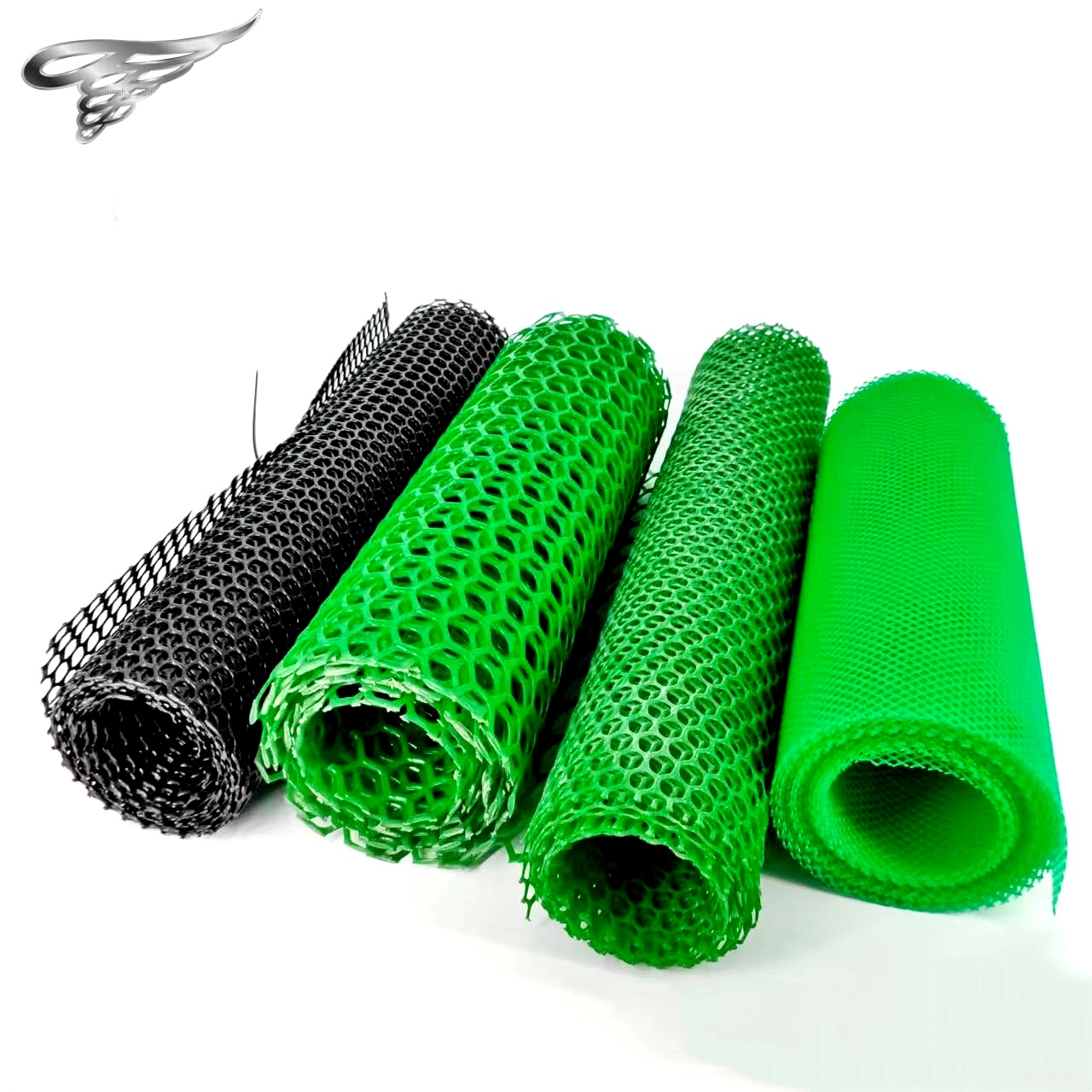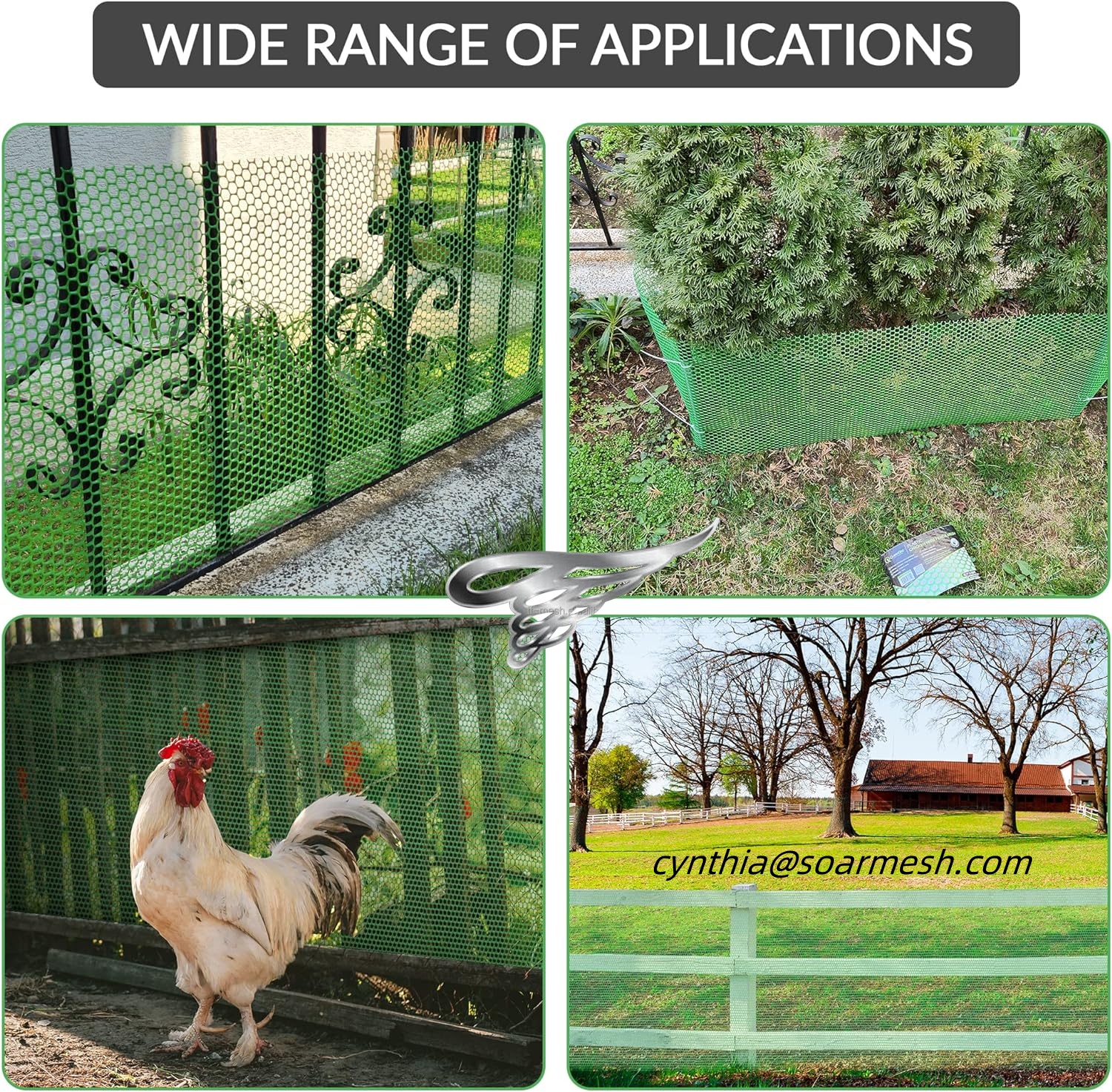In the ever-evolving world of poultry farming, maintaining the safety and security of chickens is paramount. A relatively new solution that has gained popularity among backyard and commercial poultry farmers alike is the plastic chicken fence. This fencing solution offers numerous benefits over traditional materials like wood and wire, combining flexibility with durability to create an optimal environment for raising chickens.
What is Plastic Chicken Fence?
Plastic chicken fence is a type of mesh fencing made from high-density polyethylene (HDPE) or other plastic polymers. It is designed specifically for enclosing poultry and is available in various mesh sizes and colors. Unlike traditional metal or wooden fencing, plastic chicken fence is lightweight, easy to install, and resistant to rust and rot.
Advantages of Using Plastic Chicken Fence
Durability and Longevity: Plastic chicken fences are highly resistant to environmental wear and tear. They do not rust like metal fences or rot like wood, making them a long-lasting option for poultry enclosures. Their UV-resistant properties also prevent the fence from degrading in sunlight, ensuring it remains effective and maintains its integrity over time.
Flexibility and Ease of Installation: One of the most significant advantages of plastic chicken fences is their flexibility. They can be easily cut to size and are lightweight, which simplifies the installation process. This flexibility allows farmers to create enclosures of various shapes and sizes, adapting to specific space requirements or landscape features.
Safety and Comfort for Chickens: Plastic chicken fences provide a soft barrier that minimizes the risk of injury to chickens. The smooth edges and flexible material mean that chickens are less likely to be harmed if they bump into the fence. Additionally, the mesh design allows for optimal airflow, ensuring that the enclosed area remains ventilated and comfortable for the poultry.
Cost-Effectiveness: While the initial cost of a plastic chicken fence may be higher than some traditional materials, its longevity and low maintenance requirements make it a cost-effective choice in the long run. The need for repairs or replacements is significantly reduced, and the ease of installation can save on labor costs.
Pest and Predator Control: Plastic chicken fences are effective at keeping out many predators and pests that can harm chickens. The small mesh sizes available can prevent animals like foxes and raccoons from entering the enclosure, offering better protection than some types of wire fencing.
Applications Beyond Poultry
While designed for poultry enclosures, the characteristics of plastic chicken fences make them suitable for a variety of other agricultural and residential applications. They can be used to fence in gardens to keep out small animals, as a temporary enclosure for pets, or even for setting boundaries within larger agricultural fields.
Future Prospects
As the trend toward more sustainable and animal-friendly farming practices continues, the demand for innovative solutions like plastic chicken fencing is expected to grow. Research and development in the field of agricultural plastics could lead to even more durable, environmentally friendly, and cost-effective fencing options in the future.
Conclusion
Plastic chicken fences represent a modern approach to traditional poultry farming challenges. They provide a safe, durable, and easy-to-install option that meets the needs of today’s poultry farmers. As innovations continue to enhance the qualities of agricultural plastics, plastic chicken fences are likely to become an even more integral part of farming infrastructure.
Post time: Apr-25-2024



